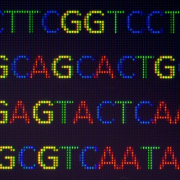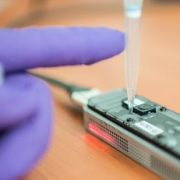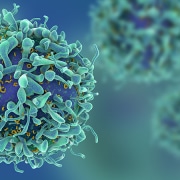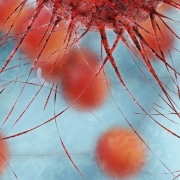Step closer to mainstream precision medicine
Rare disease diagnoses made for two of the families involved in the 100,000 Genomes Project
An important milestone for the 100,000 Genomes Project has been announced: the first new rare disease diagnoses arising from one of the pilot programmes, at the Centre for Life in Newcastle.
One patient with severe kidney disease (and a corresponding family history), Leslie Hedley, was found to have a specific rare mutation causing his condition. While there is little direct benefit in this finding to Mr Hedley himself, it is potentially very important indeed for other family members: his adult daughter is already showing signs of kidney damage and there was concern that his young granddaughter was also at risk. Now she and other family members have been tested to see whether they have inherited the same genetic variant as Mr Hedley. If so, they can receive blood pressure and kidney function monitoring and anti-hypertensive treatment to prevent or delay kidney damage.
The second case involved two brothers, Allan and William Carpenter, diagnosed with a late onset form of peripheral neuropathy. Analysis of their genome sequences revealed that they shared a previously unknown genetic mutation thought to be the cause of their disease. They will now join a treatment trial in the hope that an effective intervention can be found to prevent or limit disease in family members found to carry the same genetic variant.
What’s next for these families?
At first glance, you might think these patients have little cause for celebration. Diagnosis of a rare and potentially very serious inherited condition may not be what they wished for. However, compared with the alternative of no diagnosis, this really is good news. Genomics has ended the diagnostic odyssey for these patients, the value of which has already been underlined by the HEE Genomics Education Programme’s rare disease films.
Moreover, the Department of Health announcement of the first diagnoses emphasised that patients and families could now “receive effective, personalised treatment, as well as helping prevent future generations who share their DNA from suffering a life of uncertainty about similar symptoms”.
Perhaps the most interesting thing about these first diagnoses is that they represent a glimpse of the future. Mr Hedley is no doubt cared for by a nephrology service; his family members may be managed via hypertension clinics. The Carpenter brothers will be in the care of a neurology service, but family members who share their mutation may also wish to consult clinical genetics experts to discuss the risks of passing it on to future children. Genomics will increasingly become an element of routine practice for all sorts of clinical specialisms.
A brighter future
Happily, Mr Hedley’s granddaughter was found not to have inherited the rare disease variant. His daughter Terri Parker told a local newspaper: “I wanted to be part of the project for the benefit of my daughter, Katie, and it was such a relief when we found out that she did not have the same rare kidney disease as myself and other family members”.
Katie also faces a much brighter future in that her affected family members, while requiring NHS care, should be able to enjoy much longer, healthier lives.
–









